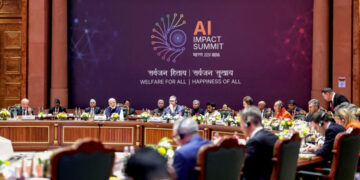By: Dr. Rajkumar Singh
Islam is a monotheistic religion founded by the Prophet Muhammad (PBUH) in the 7th century in the Arabian Peninsula. Its holy scripture is the Quran, which Muslims believe to be the word of God as revealed to Muhammad (PBUH). The core beliefs of Islam include the oneness of God, the belief in angels, prophets, and the Day of Judgment, and the importance of prayer, fasting, charity, and pilgrimage to Mecca. Muslims believe in five pillars of Islam, which are the declaration of faith, prayer, charity, fasting during Ramadan, and pilgrimage to Mecca. Islam has over 1.8 billion followers worldwide and is the second-largest religion in the world after Christianity.
According to Islamic tradition, Muhammad (PBUH) began receiving revelations from Allah (God) at the age of 40 and continued to receive them until his death in 632 CE. These revelations, which are recorded in the Islamic holy book, the Quran, form the basis of Islamic beliefs and practices.
Muhammad (PBUH) began preaching the message of Islam to the people of Mecca, but his teachings were initially met with opposition. He eventually migrated to the city of Medina in 622 CE, an event known as the Hijra, which marks the beginning of the Islamic calendar. In Medina, Muhammad (PBUH) established the first Muslim community and continued to spread the message of Islam until his death.
Global expansion of Islam
In the decades following Muhammad (PBUH)’s death, Islamic rule expanded rapidly, with the early Muslim empire eventually stretching from Spain to India. During this period, Islamic scholarship and culture flourished, particularly in the fields of science, mathematics, and literature. Islamic scholars made significant contributions to fields such as astronomy, medicine, and philosophy, and Muslim cities became centres of learning and trade.
Over time, Islam developed into several distinct branches or sects, including Sunni and Shia Islam, as well as other smaller sects. These different branches have varying interpretations of Islamic law and different religious practices. The religion continues to evolve and adapt to the modern world, while maintaining its core beliefs and practices. Within a century of Muhammad (PBUH)’s death, the Islamic empire had expanded to include the entire Arabian Peninsula, as well as parts of the Middle East, North Africa, and Spain.
The early Islamic empire was characterized by a relatively tolerant approach to conquered peoples, who were allowed to practice their own religions and customs, as long as they paid a tax known as the jizya.
This approach helped to facilitate the rapid expansion of the Islamic empire, as many conquered peoples saw the benefits of converting to Islam, such as the elimination of the jizya and increased social and economic opportunities. Over time, the Islamic empire developed into a complex system of caliphates and sultanates, with varying levels of religious and political authority. Islamic rule continued to expand and contract over the centuries, with the Ottomans, for example, establishing an Islamic empire that lasted from the 14th to the early 20th century. Today, Islam is practiced in almost every country in the world, and the majority of Muslims live in Asia and Africa.
Complexes of modern Islam
Islam is a complex religion with a rich history, diverse communities, and a wide range of religious practices and beliefs. Some of the key complexes of Islam include:
Theological Complex: This includes the beliefs, practices, and traditions of Islam, as well as its core texts, such as the Quran, Hadith, and Sunnah. Islamic theology is centered around the belief in one God (Allah), the prophethood of Muhammad (PBUH), and the concept of accountability in the afterlife.
Legal Complex: Islamic law, or Sharia, is a complex system of legal and moral codes derived from the Quran and other Islamic sources. Sharia governs all aspects of Muslim life, including personal behaviour, family law, business transactions, and criminal justice.
Cultural Complex: Islamic culture is characterized by a rich heritage of art, literature, music, and architecture, as well as distinctive cultural practices such as dress, cuisine, and social customs. Islamic culture has been shaped by centuries of interaction with diverse cultures and peoples, and has a significant influence on global culture.
Political Complex: Islam has been intertwined with political power throughout its history, with Islamic empires and caliphates exercising political and religious authority over large territories. Today, Islam continues to play a significant role in many political systems, with varying degrees of influence. e. Social Complex: Islamic social structures include family, community, and religious institutions, which play a central role in Muslim life. Islam places a strong emphasis on social responsibility, and many Muslim communities have developed distinctive social structures and practices to help meet the needs of their members. These complexes are interrelated and dynamic, and have evolved over time in response to changing social, cultural, and political circumstances. Understanding these complexities is essential for gaining a deeper appreciation of Islam and its role in the world today.
Basic tenets of Islam
The main tenets of Islam are: Belief in One God (Allah) and that Muhammad (PBUH) is his last prophet.
Performance of the Five Pillars of Islam: Shahada: Declaration of faith in the oneness of God and the prophethood of Muhammad (PBUH). Salah: Five daily prayers performed facing the Kaaba in Mecca. Zakat: Obligatory charity, usually given as a percentage of a person’s wealth. Sawm: Fasting during the month of Ramadan. Hajj: Pilgrimage to the holy city of Mecca at least once in a Muslim’s lifetime, if they are able to do so. Belief in the Day of Judgment and the afterlife. Belief in the divine origin and authority of the Quran. Belief in angels and the role they play in the world. Belief in the prophets of God, including Adam, Abraham, Moses, Jesus, and others. Emphasis on the importance of good deeds and the avoidance of sin. Respect for the sanctity of human life, regardless of race, religion, or nationality. Emphasis on the importance of family, community, and social responsibility. Belief in the concept of predestination, or that everything that happens is according to the will of God.
Dr. Rajkumar Singh is a Youth Motivator, presently Professor of Political Science and Dean of Social Sciences along with Dean, Student’s Welfare (DSW), at B.N. Mandal University, Madhepura (Bihar), India. He has 22 books published in addition to 900 articles in national and international journals and daily newspapers from 25 foreign countries.





